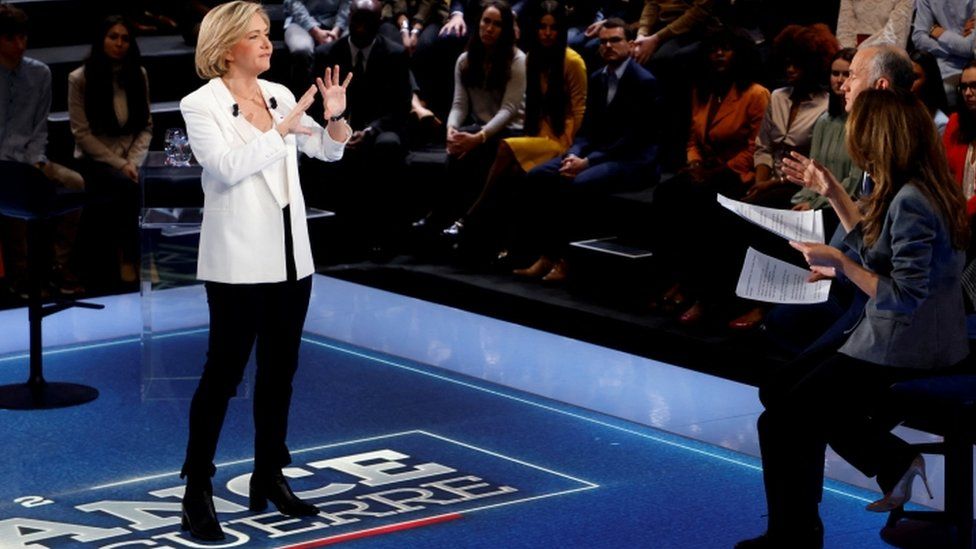French Prime Minister Faces Criticism Over Defense Decision-Making Process

Table of Contents
Concerns Regarding Military Spending and Budget Allocation
The French defense budget, while substantial, is facing intense scrutiny. Concerns are being raised about its allocation and the prioritization of certain projects over others. Critics argue that insufficient funding is being directed towards crucial modernization projects, leaving the French Armed Forces potentially vulnerable in the face of evolving threats.
- Insufficient funding for crucial modernization projects: Upgrades to aging equipment, including fighter jets and naval vessels, are lagging behind schedule due to budgetary constraints. This leaves France's military capabilities vulnerable to technological advancements in other nations.
- Allegations of mismanagement and inefficient allocation of resources: Reports suggest a lack of transparency in how funds are distributed, leading to accusations of mismanagement and a lack of accountability. This necessitates a comprehensive audit to restore public confidence.
- Comparison with defense spending of other European nations: France's defense spending, while significant in absolute terms, falls short when compared to the percentage of GDP allocated by some other European nations. This raises questions about France's commitment to maintaining a strong and modern military.
- Impact of budget cuts on troop morale and readiness: The perceived underfunding is impacting the morale of French troops and potentially affecting their readiness for deployment and operational effectiveness. Maintaining a well-equipped and motivated military is paramount for national security.
Expert opinions and statistical analysis from independent defense think tanks are crucial to gain a clearer picture of the effectiveness of the current budget allocation strategy within the French Defense Policy.
Delays and Inefficiencies in Military Procurement
The procurement process for new military equipment is plagued by delays and inefficiencies, further exacerbating concerns about the effectiveness of French defense decision-making. Specific examples of problematic projects are fueling public discontent and raising questions about the competence of the procurement agencies.
- Delays in acquiring new fighter jets or other critical equipment: The acquisition of next-generation fighter jets has faced significant delays, impacting the French Air Force's ability to maintain air superiority. Similar delays affect other critical equipment acquisitions.
- Controversies surrounding contracts awarded to specific companies: Allegations of favoritism and lack of competitive bidding in awarding major defense contracts have added to the criticism surrounding the procurement process. These controversies undermine public trust and raise questions about potential conflicts of interest.
- Analysis of the causes of these delays (bureaucracy, corruption allegations etc.): Excessive bureaucracy, complex approval processes, and even allegations of corruption are cited as contributing factors to the procurement delays. Addressing these systemic issues is paramount to improving efficiency.
- Impact on operational capabilities of the French Armed Forces: The delays directly impact the operational capabilities of the French Armed Forces, potentially compromising national security and France's ability to respond to threats effectively.
These issues are well-documented in recent news articles and official reports, underscoring the seriousness of the situation.
Lack of Transparency and Accountability in Defense Policy
A significant source of criticism is the perceived lack of transparency and accountability in the French government's handling of defense policy. This lack of openness is fueling public distrust and hindering constructive debate on crucial national security issues.
- Limited public access to information regarding defense strategy and spending: The French government has been criticized for its reluctance to release detailed information about defense strategy and spending, leaving the public largely in the dark about key decisions.
- Concerns about the lack of parliamentary oversight of defense decisions: Concerns are being raised about the adequacy of parliamentary oversight in scrutinizing defense spending and policy. Strengthening parliamentary control is crucial for enhancing accountability.
- Calls for greater transparency and accountability mechanisms: Opposition parties and civil society organizations are demanding greater transparency and the implementation of robust accountability mechanisms to ensure responsible governance in defense matters.
- Potential implications for public trust in the government: The lack of transparency erodes public trust in the government's ability to manage sensitive national security issues effectively. Restoring public confidence is paramount.
Quotes from opposition politicians and independent commentators highlight the widespread concern over the lack of transparency and accountability.
The Impact on National Security
The criticisms leveled against the French Prime Minister's handling of defense decision-making have significant implications for France's national security. The cumulative effect of these issues could severely compromise France's ability to protect its interests.
- Vulnerabilities created by procurement delays: Delays in acquiring modern military equipment create vulnerabilities, potentially leaving France exposed to threats.
- Potential impact on France's role in international alliances: The perceived weakening of France's military capabilities could negatively impact its role in NATO and other international alliances.
- Erosion of public confidence in the military's effectiveness: Public distrust in the government's handling of defense matters could extend to a loss of confidence in the military itself.
- Long-term implications for French defense capabilities: Failure to address the underlying issues could have long-term negative consequences for French defense capabilities and national security.
Conclusion
This article has examined the significant criticism facing the French Prime Minister concerning the government's handling of defense decision-making. Concerns regarding military spending, procurement delays, and a perceived lack of transparency have raised serious questions about the effectiveness and accountability of the current French defense policy, potentially impacting France's national security. The cumulative effect of these issues demands urgent attention.
The ongoing debate surrounding the French Prime Minister's defense policy demands a thorough and transparent review. It is crucial for the government to address these concerns promptly and implement reforms to improve the efficiency and accountability of the French defense decision-making process. Continued scrutiny and public engagement on this critical issue are essential to ensure the future strength and security of France. A comprehensive overhaul of the French defense decision-making process is necessary to restore public trust and ensure the long-term effectiveness of the French Armed Forces.

Featured Posts
-
 Spotify On I Phone Choose Your Preferred Payment Method
May 04, 2025
Spotify On I Phone Choose Your Preferred Payment Method
May 04, 2025 -
 Powerful New Art Exhibition Launches In Athy What To Expect
May 04, 2025
Powerful New Art Exhibition Launches In Athy What To Expect
May 04, 2025 -
 Ufc 313 What To Expect From The Main Event And Undercard
May 04, 2025
Ufc 313 What To Expect From The Main Event And Undercard
May 04, 2025 -
 Ufc 314 Volkanovski Vs Lopes Fight Card Breakdown
May 04, 2025
Ufc 314 Volkanovski Vs Lopes Fight Card Breakdown
May 04, 2025 -
 Razlad Kupera I Di Kaprio Slukhi I Realnost
May 04, 2025
Razlad Kupera I Di Kaprio Slukhi I Realnost
May 04, 2025
